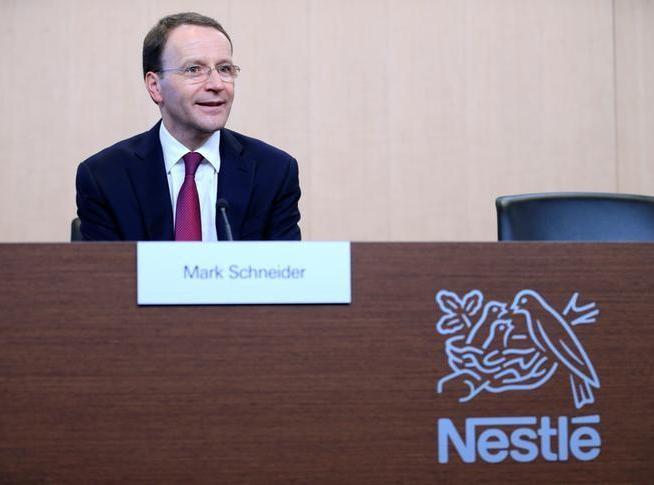Nestle CEO sees transparency as path to regaining status

Nestle and other big brands have to go “an extra mile” to win consumers’ trust, as the world’s largest packaged foods maker battles the small, local upstarts that are currently winning in the marketplace, its new CEO said on Thursday.
Mark Schneider, who took charge of the maker of KitKat chocolate and Nescafe coffee in January, admitted at the annual meeting of the Consumer Goods Forum (CGF) that the world had changed dramatically over the past 30 years, with the anti-globalisation movement and the financial crisis eroding trust in big brands.
“For global brands, there is an extra mile we have to go to win that confidence,” Schneider said. “Local brands, local products automatically have a headstart,” he added.
“Consumers are getting more and more interested in how a product is actually made … that requires a whole lot of transparency,” he told the meeting, which brings together the world’s biggest retailers and packaged food companies.
A survey by KPMG and the CGF released this week found that three quarters of consumer and retail executives cited consumer trust and loyalty as “very to critically important” to their near-term success.
Schneider said smaller brands were benefiting from fact they can now communicate with consumers directly via social media and sell their products online, bypassing retailers.
“The barrier to entry … has all but disappeared,” he said. “This is what gets small businesses started.”
Big consumer goods firms have responded by snapping up some niche brands, particularly in the drinks sector, with Diageo Plc saying on Wednesday it will buy George Clooney’s high-end tequila brand Casamigos for up to $1 billion.
In February, Schneider scrapped Nestle’s long-standing sales target as it reported disappointing annual results, echoing rivals by striking a cautious tone in an uncertain environment.
Schneider said on Thursday the rise of niche products, as well as deflation and stagnant growth in western Europe and Japan, had prompted some consumer goods companies to respond with radical cost-cutting.
“We don’t believe in that model. We don’t believe it is proven in its long-term viability,” he said. “Strong brands either grow or die and we are committed to grow.”









0 Comments